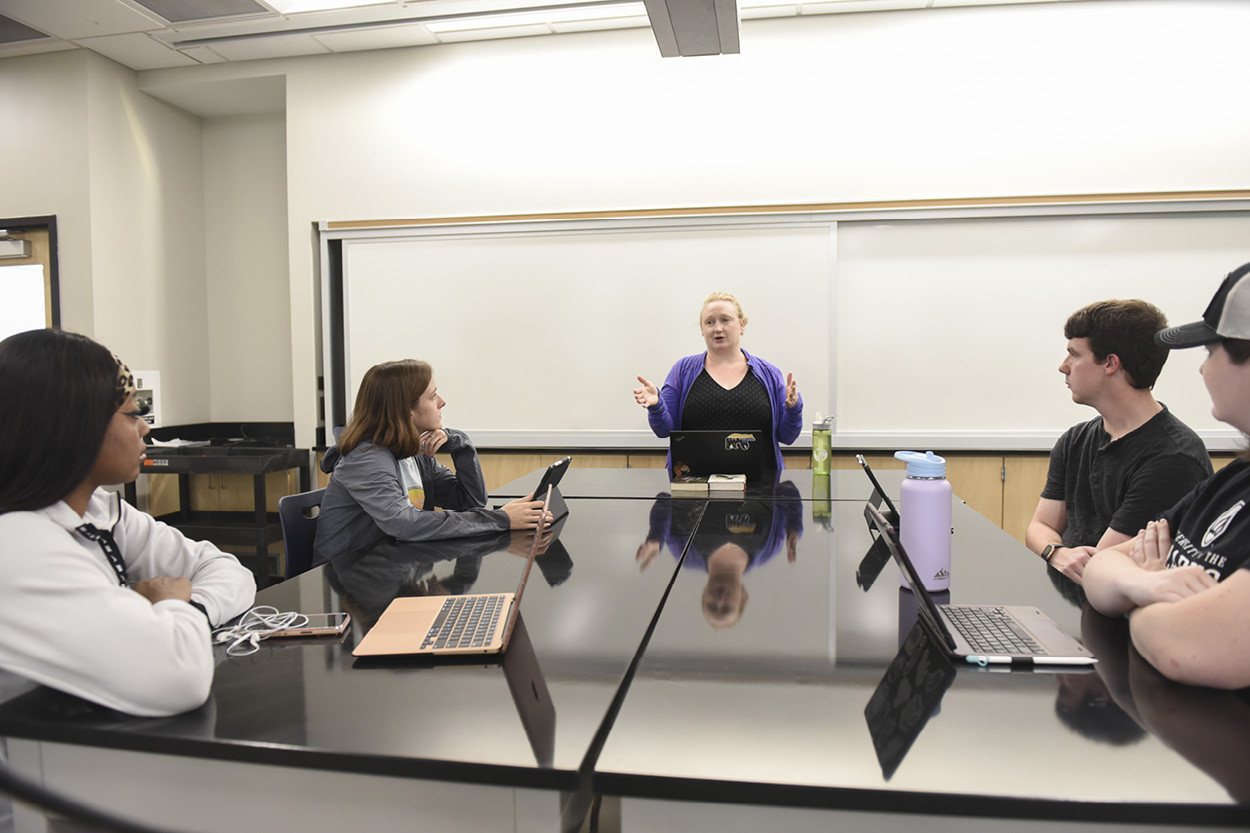
University of the Ozarks has received a grant for $28,000 for a high-performance liquid chromatography (HPLC) system to support faculty and student involvement in research.
The grant was made possible by the Arkansas IDeA Network of Biomedical Research Excellence (INBRE) program and the National Institutes of Health National Institute of General Medical Sciences. The award is part of a consortium agreement between U of O and the University of Arkansas for Medical Sciences.
The lead professors on the proposal included Dr. Derek Warren, assistant professor of biology; Dr. Christie L. Sampson, assistant professor of biology; and Dr. Befrika S. Murdianti, associate professor of chemistry.
Warren said the liquid chromatography system will provide the University with access to similar resources of a much larger research institution. He said the equipment is a basic tool for many research areas in cell physiology and chemistry as well as basic metabolomics, and will fit in nicely in the University’s new Wilson Science Center, which opened last year.
“We are excited for the addition of a state of the art HPLC-UV system to the new Wilson Science Center,” Warren said. “Overall, the goal is to enhance our students’ competitiveness for graduate/professional programs and jobs post-graduation by improving access to on-campus research opportunities. Currently, we have plans to use the system in student research projects in the biology, chemistry, and heath science projects such as assessing microplastics contamination in aquatic ecosystems around Arkansas and characterizing how diet and environment alter gut microflora fermentation. The versatile system will be a great addition to Ozarks’ science programs and will be used by our students and faculty for years to come.”
Warren said the HPLC system will allow U of O students to learn such research skills as “amino acid analysis, fatty acid extraction and profiling, and quantification of basic metabolites and environmental toxins.”
Sampson’s research interests include quantifying the spread and potential threat of microplastics in freshwater aquatic food webs.
“Chromatography plays a critical and diverse role in the study of microplastics,” Sampson said. “Allowing students access to the HPLC will help prepare those interested in the growing field of microplastic research. I plan to provide research opportunities to students replicating the studies I am conducting in northern Canada here in Arkansas, particularly microplastic sorption studies analyzing organic contaminant concentrations.”
The Arkansas INBRE is funded by a grant from the National Institute of General Medical Sciences under the Institutional Development Award (IDeA) Program of the National Institutes of Health (NIH). The IDeA program was established for the purpose of broadening the geographic distribution of NIH funding for biomedical and behavioral research. Currently NIGMS supports INBRE programs in 23 states and Puerto Rico.
Topics: About, Biology, Chemistry, Donor Spotlights, Giving
